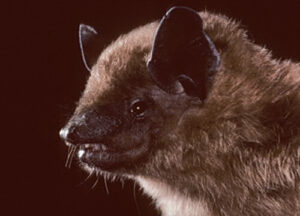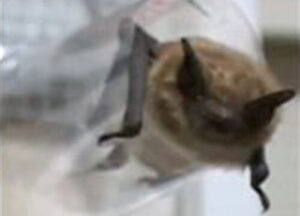WESTCHESTER COUNTY #
WESTCHESTER COUNTY #
Owner Jim Dreisacker invented and uses the Batcone and Pro-cone, which are industry tested humane bat removal and exclusion products for Residential and Commercial use. Find out more about them at batcone.com. Choose between the Pro-Cone Round, Pro-Cone Square or Pro-Cone Corner. These products are endorsed by the Organization for Bat Conservation and Bat Conservation International.
Bats consume enormous quantities of mosquitoes and other insects each year making them very beneficial to the ecosystem and should not, under any circumstance, be touched, injured, or killed. A single little brown bat can catch 1200 mosquito sized insects in one hour. During their maternity season May-August , we do not recommend bat removal.
enormous quantities of mosquitoes and other insects each year making them very beneficial to the ecosystem and should not, under any circumstance, be touched, injured, or killed. A single little brown bat can catch 1200 mosquito sized insects in one hour. During their maternity season May-August , we do not recommend bat removal.
In your home, however, they bring the risk of rabies, Histoplasmosis, Property Damage, and Bat Mites (often mistaken for bed bugs). In a commercial setting, you can add liability, loss of customers, and depreciation.
Bats will not fly into your hair. Bats are not blind. Bats are of benefit to humans. All bats carry rabies is just not true. In reality less than one percent of bats carry rabies, and fewer than ten people have contracted rabies from North American bats in over 50 years.
Westchester Wildlife deals with such situations using non-lethal, non-chemical methods, with a humane, patented exclusion system created and developed by Batcone LLC. Depending on the situation, we’ll use either the Batcone or Pro-cone.
 Bats are gentle creatures but occasionally they become nuisance and get “too close for comfort”. If this occurs, don’t panic. All the negative stories and tales you’ve heard about bats are greatly exaggerated. Over the years bats have been needlessly persecuted by humans. However, bats found in living spaces should always be tested for rabies. Never chase a bat out of your home. Instead, isolate the bat to one room, and call Westchester Wildlife immediately.
Bats are gentle creatures but occasionally they become nuisance and get “too close for comfort”. If this occurs, don’t panic. All the negative stories and tales you’ve heard about bats are greatly exaggerated. Over the years bats have been needlessly persecuted by humans. However, bats found in living spaces should always be tested for rabies. Never chase a bat out of your home. Instead, isolate the bat to one room, and call Westchester Wildlife immediately.
Whenever handling a bat, ALWAYS protect yourself by wearing leather gloves. There are ways to control unwanted bats and prevent them from occupying houses or other buildings without killing them.
While chasing insects, bats often fly erratically. This has led some people to mistakenly believe they are being “attacked” by the bat. In fact, bats are very proficient flyers and can easily catch insects while avoiding people.
The most common bat and human interactions involve a single bat that has found its way into a house or a colony of bats that has taken up residence in an attic, chimney or other structure. Bats do not attack humans but like any animal that responds to possible harm, biting is a defense mechanism.
Call Westchester Wildlife for professional removal of a single bat or a colony of bats in or around your house or business. We service the Westchester, Dutchess, and Fairfield CT counties.
Want to see a gallery of bats we’ve removed from homes in New York and Connecticut? We thought you’d never ask.
By Michael Risinit , The Journal News, July 8, 2008
The bats never came home this year to their roost behind the shutters of a raised ranch in nearby Connecticut.
Jim Dreisacker, owner of Westchester Wildlife, a nuisance-wildlife removal company, went recently to place spacers behind the shutters and reposition them to eliminate the bats’ cozy resting spot. The “couple of hundred” little brown bats who had spent summers behind the shutters weren’t there.
He had them every year for several years,” Dreisacker said. “They never came back. There wasn’t one bat under one shutter.
The only explanation Dreisacker could think of was “white-nose syndrome,” a mysterious affliction killing tens of thousands of bats in the past two years across the Northeast. The cause of the bat mortality, which has been documented in about 20 bat hibernation caves in New York, Vermont, Massachusetts and Connecticut, remains unknown. Many of the dead bats were found with a white fungus dusting their muzzles, hence the name of the mystifying malady. The fungus is thought to be a symptom, not the cause of death.
Most of the deaths occurred in the winter as bats huddled in caves and mines, although Vermont wildlife officials are fielding daily phone calls about dead bats. The ailment interrupts hibernation and has dozens of scientists, wildlife researchers and others from across the country scrambling for answers.
If you have any problem regarding wildlife, please contact us or call at (800) 273-6673.
Toll Free: 800.273.6673
Phone: (914) 760-5713
PO Box 579 Brewster,
NY 10509 USA
* Westchester Wildlife, LLC is not affiliated with the County. All services are fee based.
Copyright © 2023 Westchester Wildlife LLC. All Rights Reserved.